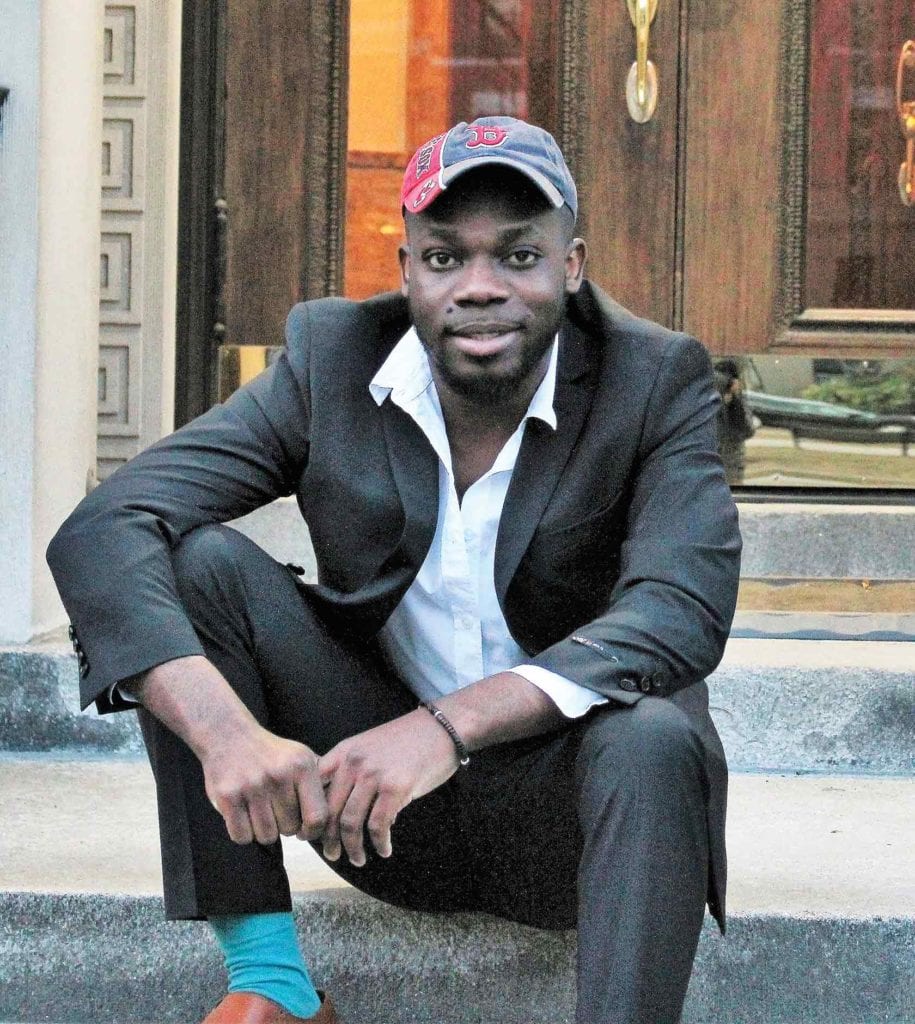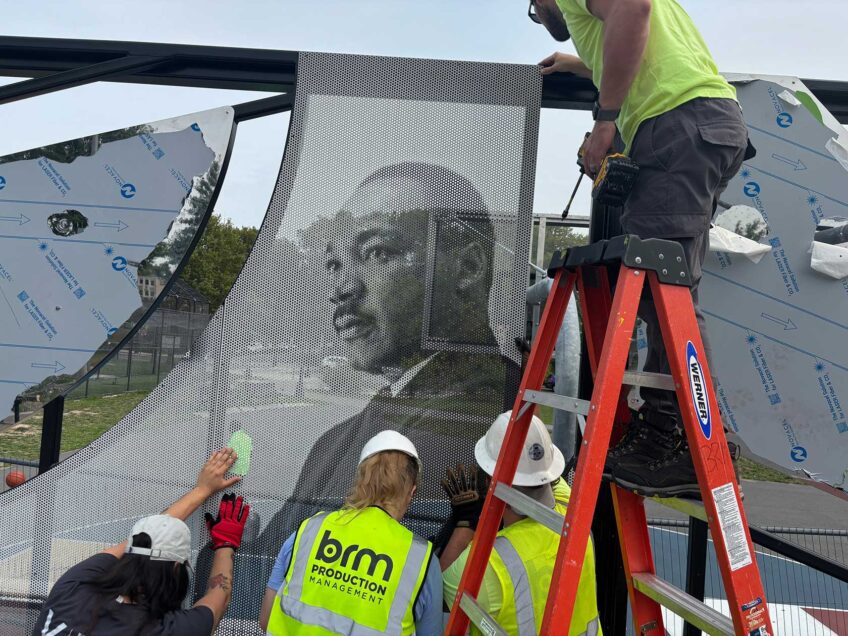‘How the End First Showed’
Nigerian author D.M. Aderibigbe debuts first book of poetry

Boston-based Nigerian author D. M. Aderibigbe debuted his first book of poetry this month with the University of Wisconsin Press. “How the End First Showed” draws on his own experience growing up in Lagos. Aderibigbe writes with beautiful simile and chilling rhythm about the domestic violence he witnessed as a child. He hopes the poems will serve as a call to action not to brush spousal abuse under the rug.
“The book is very autobiographical,” says Aderibigbe. “I grew up with many women around me who were beaten by men who were supposed to love them. This book is an attempt to go back in time and understand my childhood.”
The book is structured in three sections. The first is the protagonist’s grandmother telling him stories of their family history; the second contains stories told by his mother and moments that he witnesses; the third is an elegy for the future. By structuring the book as primarily told by other sources, Aderibigbe illustrates the ways children raised in these circumstances witness and understand abuse. As an adult he can now examine how this behavior was normalized in the society he grew up in.
“[A large number of] African women die from beatings by their husbands,” says Aderibigbe. “These things are kind of swept under the carpet. Many of them die so their kids can survive.” This problem isn’t isolated to Nigeria. According to the National Coalition Against Domestic Violence, nearly 20 people per minute are physically abused by an intimate partner in the United States.
“How the End First Showed” has already been awarded the Brittingham Prize in Poetry, a testament to the desperate need for works like this.
Aderibigbe incorporates his African roots into his poetry stylistically as well. The book is sprinkled with Yoruba words and phrases, and the poet utilizes the cadences of the language and music of Nigeria. “We salivated; slices of yam softened. / We chewed our teeth; slices of yam perished. / Mother smiled. Father arrived, / filled the room with curses; / his voice beat in our hearts, / as thunder on the walls of a building,” he writes. His stanzas flow from the soft, slow descriptions of his mother to the hard, abrupt entrance of his father.
Aderibigbe received his Master of Fine Arts in poetry from Boston University and currently lives in Boston’s Back Bay. He’s also pursuing his Ph.D. at Florida State University. His poetry has been published in the “African American Review,” “The Nation,” “Ninth Letter” and other outlets. On Dec. 10, the Harvard Book Store in Cambridge will host Aderibigbe for a free reading and book signing.








